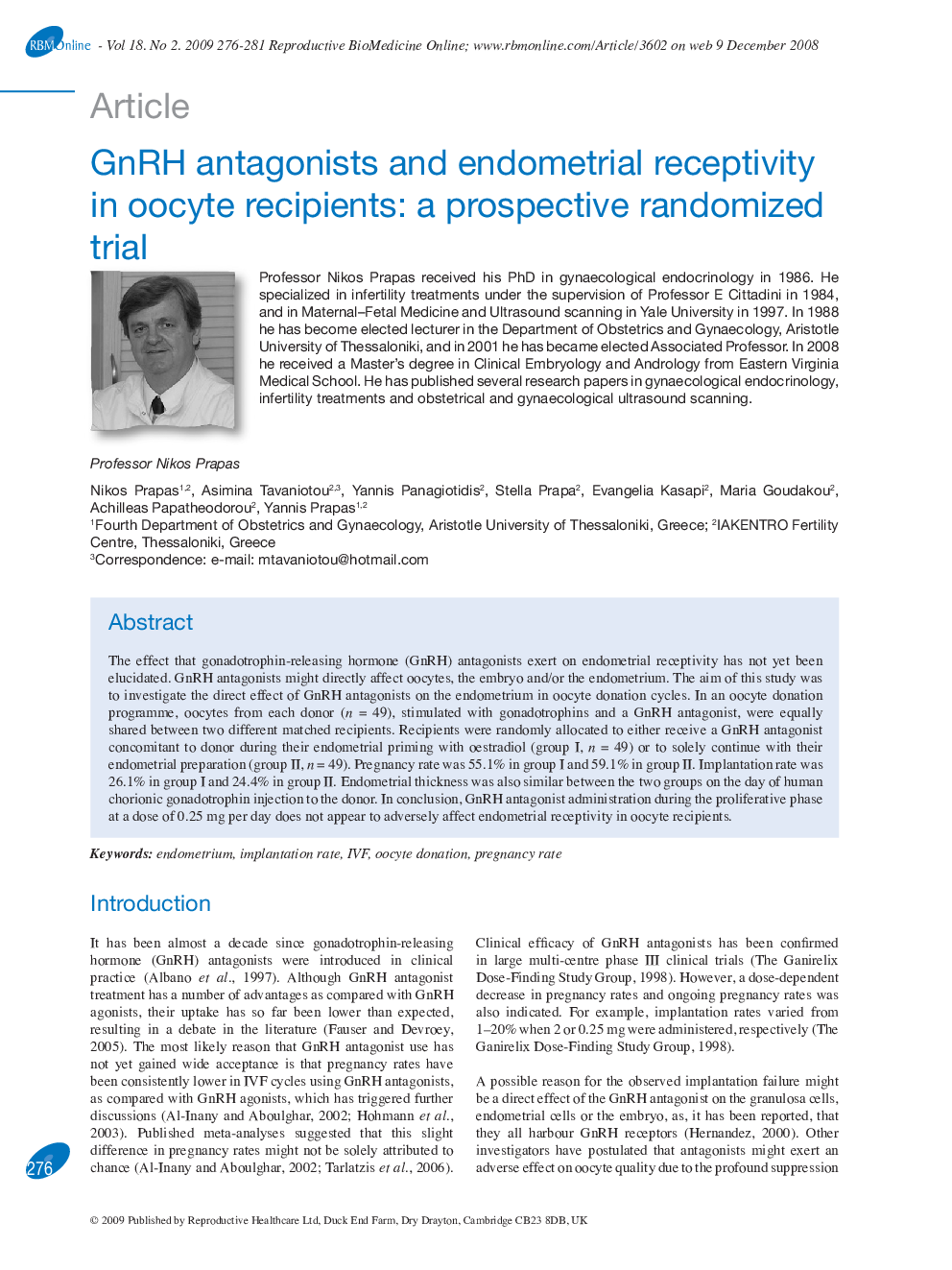| Article ID | Journal | Published Year | Pages | File Type |
|---|---|---|---|---|
| 3972209 | Reproductive BioMedicine Online | 2009 | 6 Pages |
The effect that gonadotrophin-releasing hormone (GnRH) antagonists exert on endometrial receptivity has not yet been elucidated. GnRH antagonists might directly affect oocytes, the embryo and/or the endometrium. The aim of this study was to investigate the direct effect of GnRH antagonists on the endometrium in oocyte donation cycles. In an oocyte donation programme, oocytes from each donor (n = 49), stimulated with gonadotrophins and a GnRH antagonist, were equally shared between two different matched recipients. Recipients were randomly allocated to either receive a GnRH antagonist concomitant to donor during their endometrial priming with oestradiol (group I, n = 49) or to solely continue with their endometrial preparation (group II, n = 49). Pregnancy rate was 55.1% in group I and 59.1% in group II. Implantation rate was 26.1% in group I and 24.4% in group II. Endometrial thickness was also similar between the two groups on the day of human chorionic gonadotrophin injection to the donor. In conclusion, GnRH antagonist administration during the proliferative phase at a dose of 0.25 mg per day does not appear to adversely affect endometrial receptivity in oocyte recipients.
